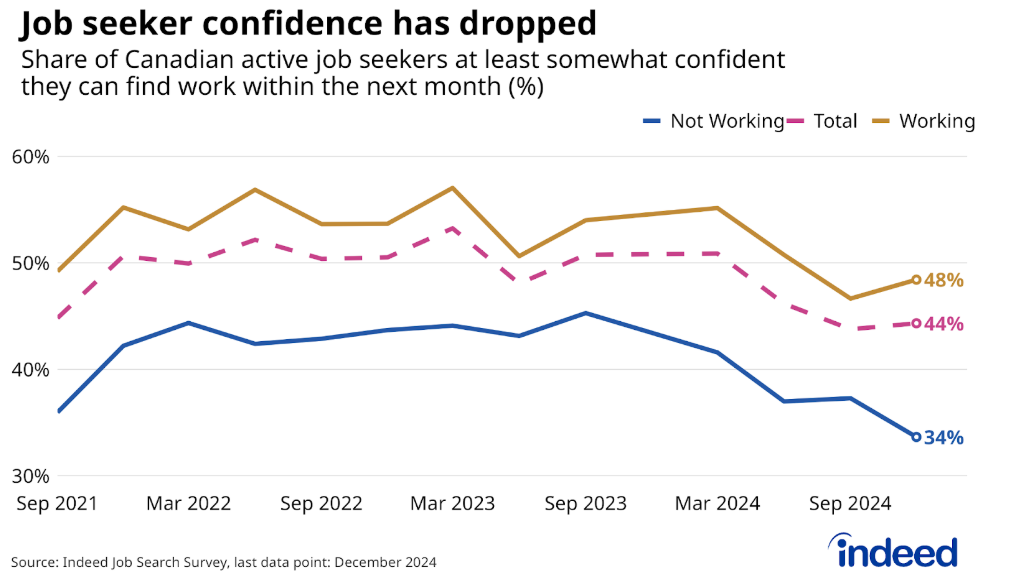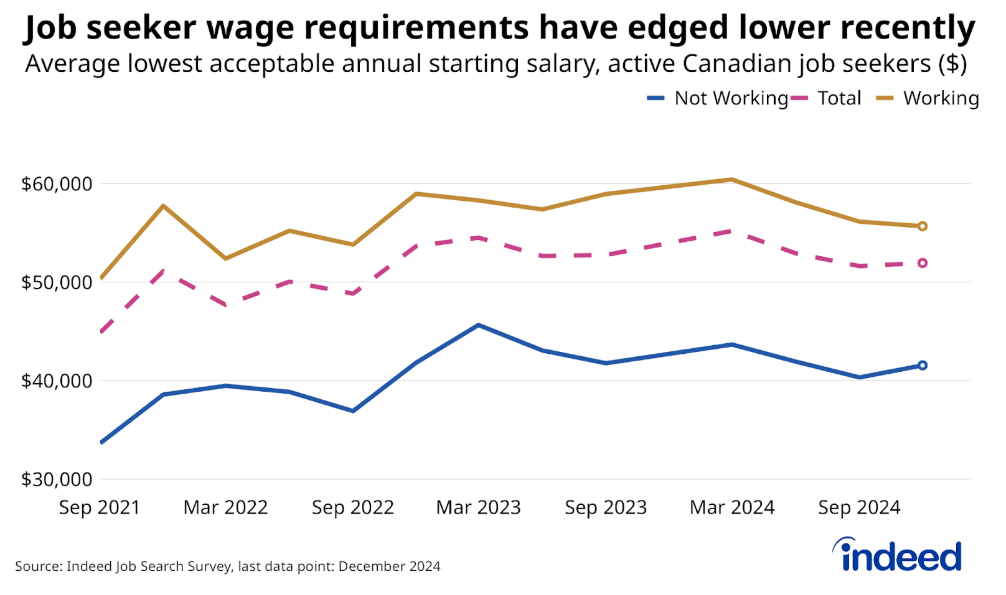
Minimum starting salaries also see declines in Canada

Canadian job seekers are expecting a tough time finding new employment this year, according to two reports.
Almost half of Canadian job seekers (46%) believe there will be fewer job opportunities in their field in 2025 compared to a year ago, according to Express Employment Professionals.
This is a significant increase from 2024’s survey when only 31% of job seekers expected fewer job opportunities.
Additionally, while one-third of job seekers (36%) believe opportunities in their field in 2025 will remain consistent with 2024, less than 1 in 5 (18%) believe there will be more job opportunities this year in their field.
Meanwhile, just 44% of active job seekers say they were either somewhat or very confident they could find a new job within the next month, according to an Indeed survey.
The share had been relatively stable at about 51% between 2022 and early 2024, before the recent decline.

“Unemployed Canadians reported an especially sharp drop in confidence. Only about a third (34%) of those out of work and actively searching said they were at least somewhat confident they could find a job quickly in Q4, down from 45% in mid-2023,” says Brendon Bernard, senior economist at the Indeed Hiring Lab.
“Meanwhile, the share of employed job seekers who said they were confident slipped somewhat less, from 54% to 48% over the same period. Still, both groups are more pessimistic than in recent years.”
More than one in three employees across the world are planning to leave their current job, according to a previous ManpowerGroup report.
Employed job seekers are primarily looking for better compensation (43%), improved work-life balance (41%) and better growth opportunities (36%), according to Express’ survey of 505 Canadian adults, conducted Nov. 21 to Dec. 6, 2024.
The most significant challenges listed by job seekers include:
finding opportunities that match their qualifications (57%)
securing jobs with the pay they need to cover basic expenses (49%)
standing out in a competitive market (46%)
Meanwhile, the top barriers are:
lacking skills (hard skills, soft skills or communication skills) (39%)
companies claiming to be hiring but merely collecting applicants/resumes to review (34%)
being underqualified (28%)
Declining optimism in the ability to quickly land a role is also likely starting to influence the quality of opportunities job seekers are willing to accept, says Bernard, based on Indeed’s survey of 10,000 Canadian adults in December 2024.
“The average lowest annual salary active job seekers reported they would accept jumped amid surging inflation in 2022, from $48,000 at the start of that year to $54,500 in Q1 2023. Minimum starting salaries edged up further afterward but slipped back in 2024, to an average of $52,000 by Q4.”

Despite all these, more than half of Canadian companies (51%) report plans to increase their employee count in the first half of 2025, according to another Express-Harris Poll survey.
In this current labour market, upskilling is key for job seekers, says Bill Stoller, Express Employment International CEO.
"Navigating the job market in 2025 requires resilience and adaptability.
"As job seekers face a dynamic landscape, those who remain proactive and open to continuous learning will find opportunities even in uncertain times. The key to success lies in leveraging one's unique strengths and staying prepared to pivot as the market evolves."